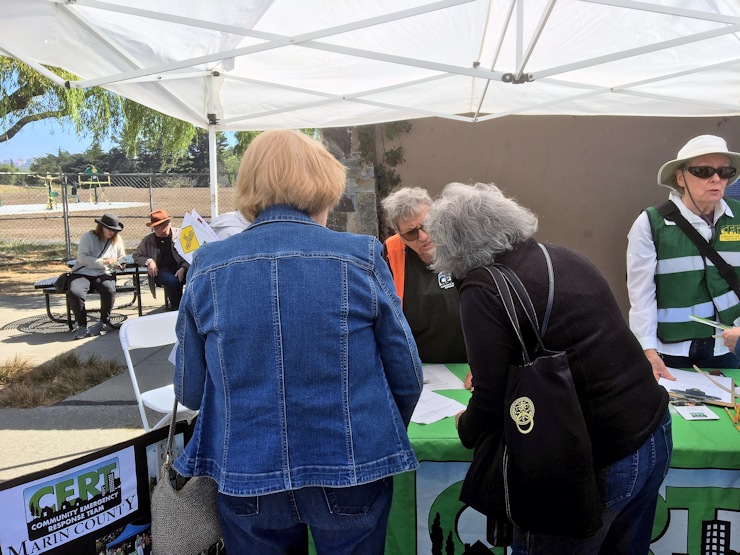
If you live alone, especially with a disability, it’s smart to enlist a buddy to help with emergencies. In one case, a woman in her 90s who lives alone worked out a clever way to check in with her neighbor. When she gets out of bed, she makes sure to pull up the shade that is visible to her neighbor so her neighbor knows all is well. If the shade does not go up by 10:00 a.m., her phone will be ringing, followed by a knock at the door.
Neighbors can share door keys, lists of family contacts, phone numbers of doctors, pharmacies, etc., and other personal information.
After the evacuation presentations that Sausalito Village staged last year, two neighbors made a pact. Since they both live alone with no family nearby, they decided if there was an evacuation order or some disaster that forced them out of their homes, they would meet up at a nearby parking lot. In addition, they shared out–of–state contacts the other could call if one of them does not show up.
Individuals with disabilities should inform neighbors of any special assistance that may be required in the event of an emergency or evacuation, such as assistance with hearing alarms, guidance during alarms, etc.). If you have a disabled neighbor, consider volunteering to be that person’s buddy. When there’s a notification of an emergency situation, the buddy makes sure of the location of the person with a disability, then goes outside and informs emergency personnel that a person in that location needs assistance. Emergency personnel will then enter the home and evacuate that person.
Good buddies make good neighbors. And vice versa.